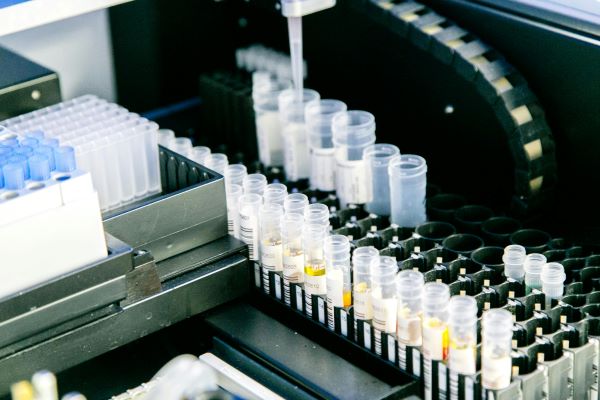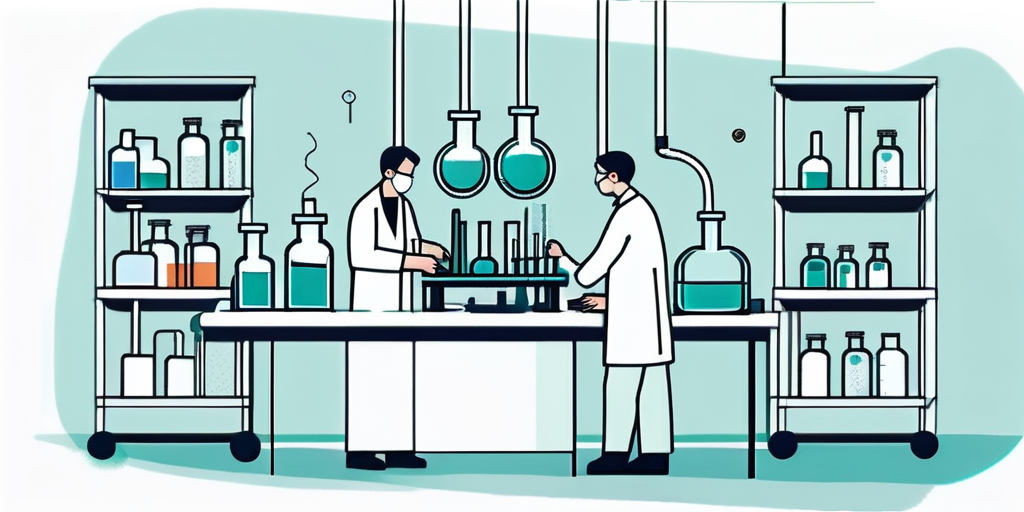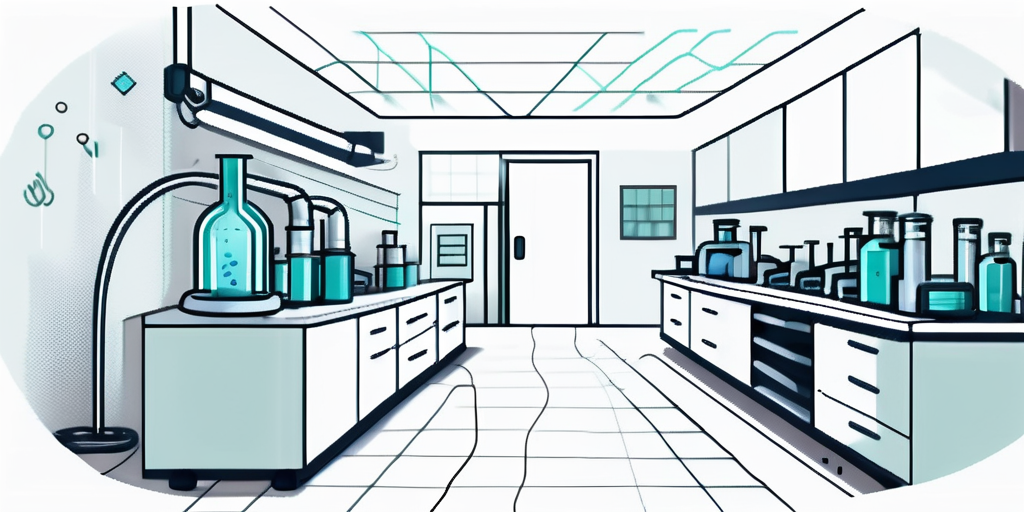Quick CV Dropoff
Send us your CV

Embarking on a career path in the field of clinical development can be an exciting and rewarding journey. With the rapid advancements in medicine and innovative treatments, the demand for clinical development professionals is rising. In this article, we will delve into the intricacies of clinical development careers, explore the diverse opportunities available, discuss the career progression path, highlight the challenges and rewards, and provide advice on how to prepare for a successful career in this field.
Clinical development refers to the process of bringing new drugs, therapies, and medical devices from the laboratory to the market. It is a complex and multi-disciplinary field that requires the collaboration of various stakeholders, including scientists, researchers, physicians, and regulatory authorities.

Clinical development professionals play a crucial role in every stage of the drug development process. They are responsible for designing and executing clinical trials, collecting and analyzing data, ensuring regulatory compliance, and monitoring patient safety. These professionals act as liaisons between research teams, healthcare providers, and regulatory bodies.
To excel in clinical development careers, individuals need a strong foundation in life sciences, pharmacology, or a related field. They must possess excellent analytical and problem-solving skills, attention to detail, and the ability to work in a multidisciplinary environment. Effective communication and interpersonal skills are also essential, as clinical development professionals often collaborate with diverse teams and interact with patients and healthcare professionals.
The clinical development process consists of several phases, each with its own unique challenges and objectives. The first phase, known as Phase 1, involves testing the drug or therapy on a small group of healthy volunteers to determine its safety and dosage. This phase is crucial in identifying any potential side effects or adverse reactions.
Once a drug or therapy passes Phase 1, it moves on to Phase 2, where it is tested on a larger group of patients to evaluate its effectiveness and further assess its safety profile. This phase provides valuable data on the drug's efficacy and helps researchers determine the optimal dosage and treatment regimen.
If a drug or therapy successfully completes Phase 2, it progresses to Phase 3, which involves testing the drug on a much larger and more diverse patient population. This phase aims to confirm the drug's effectiveness, monitor any rare side effects, and compare its benefits to existing treatment options.
After successfully completing Phase 3, the drug or therapy undergoes a rigorous review by regulatory authorities, such as the Food and Drug Administration (FDA) in the United States. This review process ensures that the drug meets safety and efficacy standards before it can be approved for market distribution.
With the growth of the healthcare industry, there are numerous career opportunities in clinical development. Whether you prefer a hands-on approach in the laboratory or a leadership role overseeing clinical trials, there is a path for every interest.
A Clinical Research Associate (CRA) is responsible for monitoring and managing clinical trials. They ensure that studies are conducted in compliance with protocols, regulations, and ethical standards. CRAs oversee site initiation, data collection, and site closeout visits. This role requires strong organizational skills, attention to detail, and the ability to travel frequently.
As a Clinical Data Manager, you will be responsible for overseeing the collection, validation, and analysis of clinical trial data. This role requires expertise in data management systems, statistical analysis, and a keen eye for detail. Clinical Data Managers collaborate closely with other team members to ensure data accuracy and integrity.
Clinical Project Managers play a critical role in overseeing all aspects of clinical trials. From study planning and budgeting to recruitment and timeline management, they ensure that trials are conducted efficiently and meet quality standards. This position requires strong leadership and communication skills, as well as the ability to manage cross-functional teams.
Aside from these key roles, there are several other exciting career paths within clinical development. One such role is that of a Clinical Trial Coordinator. These professionals work closely with investigators and study teams to ensure the smooth execution of clinical trials. They assist with protocol development, patient recruitment, and regulatory compliance. Attention to detail and excellent organizational skills are essential for success in this role.
Another interesting career option is that of a Clinical Research Scientist. These individuals are responsible for designing and implementing clinical research studies. They develop research protocols, analyze study data, and contribute to scientific publications. Clinical Research Scientists collaborate with cross-functional teams and external stakeholders to advance medical knowledge and improve patient outcomes.
With the increasing complexity of clinical trials, the demand for professionals in clinical development continues to grow. Roles such as Clinical Research Nurse, Clinical Quality Assurance Specialist, and Regulatory Affairs Manager also offer unique opportunities for individuals passionate about improving healthcare through research and development.
Clinical development careers offer a clear progression path, allowing professionals to grow and advance in their chosen field.
Entry-level positions in clinical development include roles such as Clinical Research Assistant or Data Entry Coordinator. These positions provide valuable hands-on experience and exposure to various aspects of clinical trials, allowing individuals to develop foundational skills and knowledge.
Mid-level roles, such as Clinical Research Coordinator or Clinical Project Lead, offer opportunities for increased responsibility and specialization. Professionals in these positions oversee specific areas of clinical trials and take on additional project management tasks.
Senior leadership roles, such as Clinical Development Director or Vice President of Clinical Operations, require extensive experience and expertise. These individuals provide strategic guidance and oversight, shaping the direction of clinical development programs and leading teams of professionals.
Like any career, clinical development comes with its own set of challenges and rewards. It is important to understand and navigate these aspects to thrive in this field.
One of the main challenges in clinical development is the fast-paced nature of the work. Strict timelines, evolving regulations, and the need for quick decision-making can be demanding. Flexibility, adaptability, and effective time management are key skills to overcome these challenges.
The rewards of a career in clinical development are plentiful. Contributing to the advancement of medical knowledge and the development of life-saving treatments can be incredibly fulfilling. Additionally, the opportunity for continuous learning and professional growth makes this field exciting and dynamic.
If you aspire to pursue a career in clinical development, it is essential to lay a solid foundation for success.

An undergraduate degree in life sciences, pharmacy, or a related field is typically required for entry into clinical development careers. Further education, such as a Master's degree or specialized certifications, can enhance your prospects for advancement.
Practical experience is highly valued in clinical development. Seek opportunities to work in research laboratories, volunteer in clinical trial settings, or secure internships with pharmaceutical companies. This hands-on experience will provide valuable insights and help you develop the necessary skills for a successful career.
Networking is instrumental in building connections and staying updated with industry trends. Attend conferences, join professional organizations, and engage with industry experts. Continuous professional development through workshops, seminars, and online courses can also enhance your knowledge base and demonstrate your commitment to ongoing learning.
A career in clinical development offers a dynamic and fulfilling path for individuals passionate about making a positive impact on healthcare. With an array of opportunities, a clear progression path, and the chance to contribute to medical advancements, this field holds immense potential for success. By acquiring the necessary skills, gaining practical experience, and staying abreast of industry developments, aspiring clinical development professionals can set themselves on the path to a rewarding and impactful career.
Start your journey in clinical development today. Let us help you find the perfect opportunity. Contact us now!